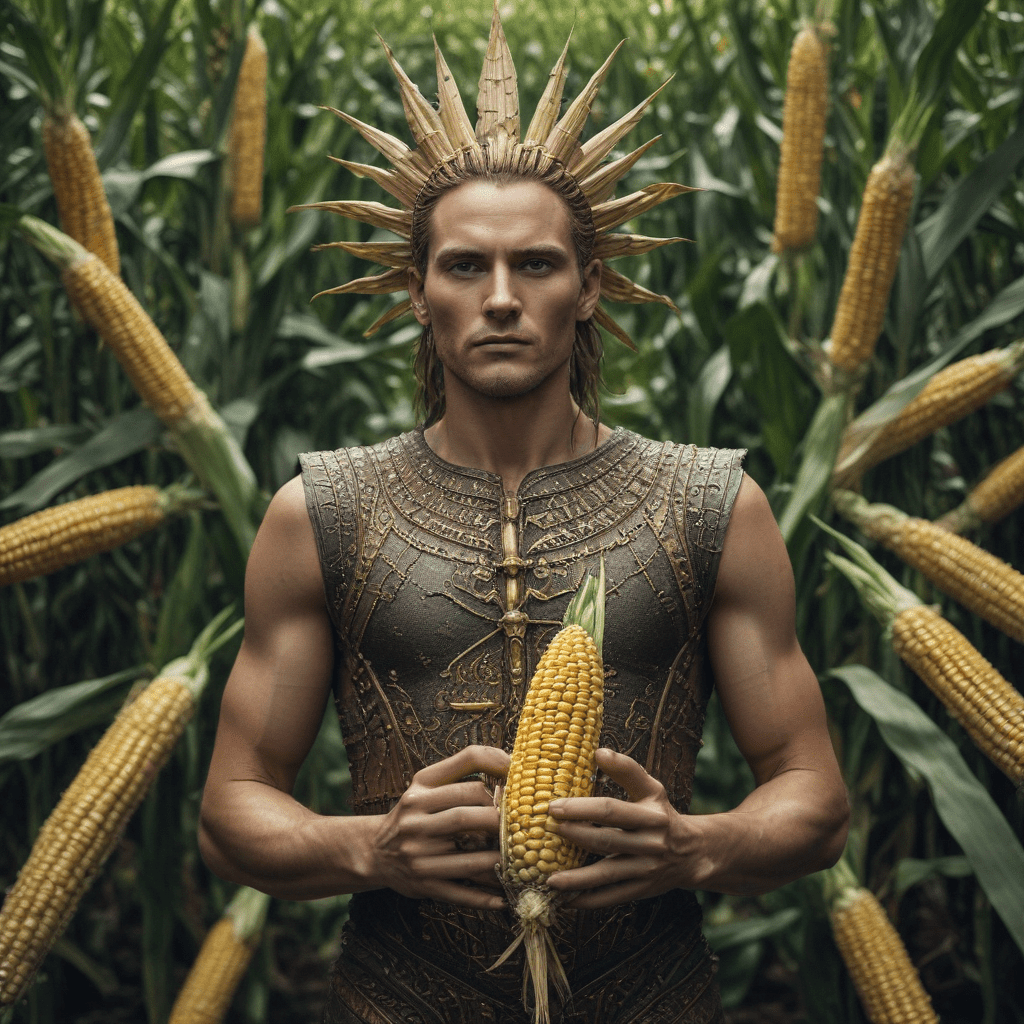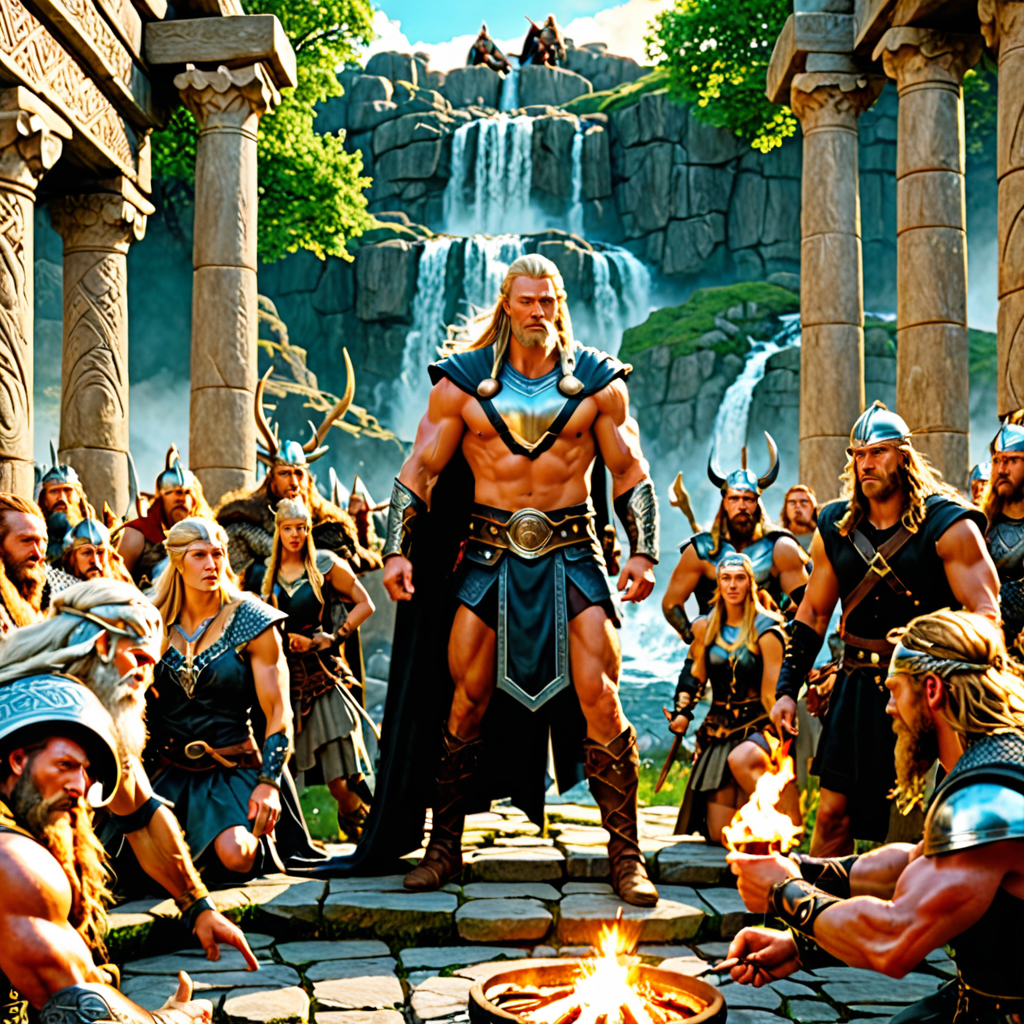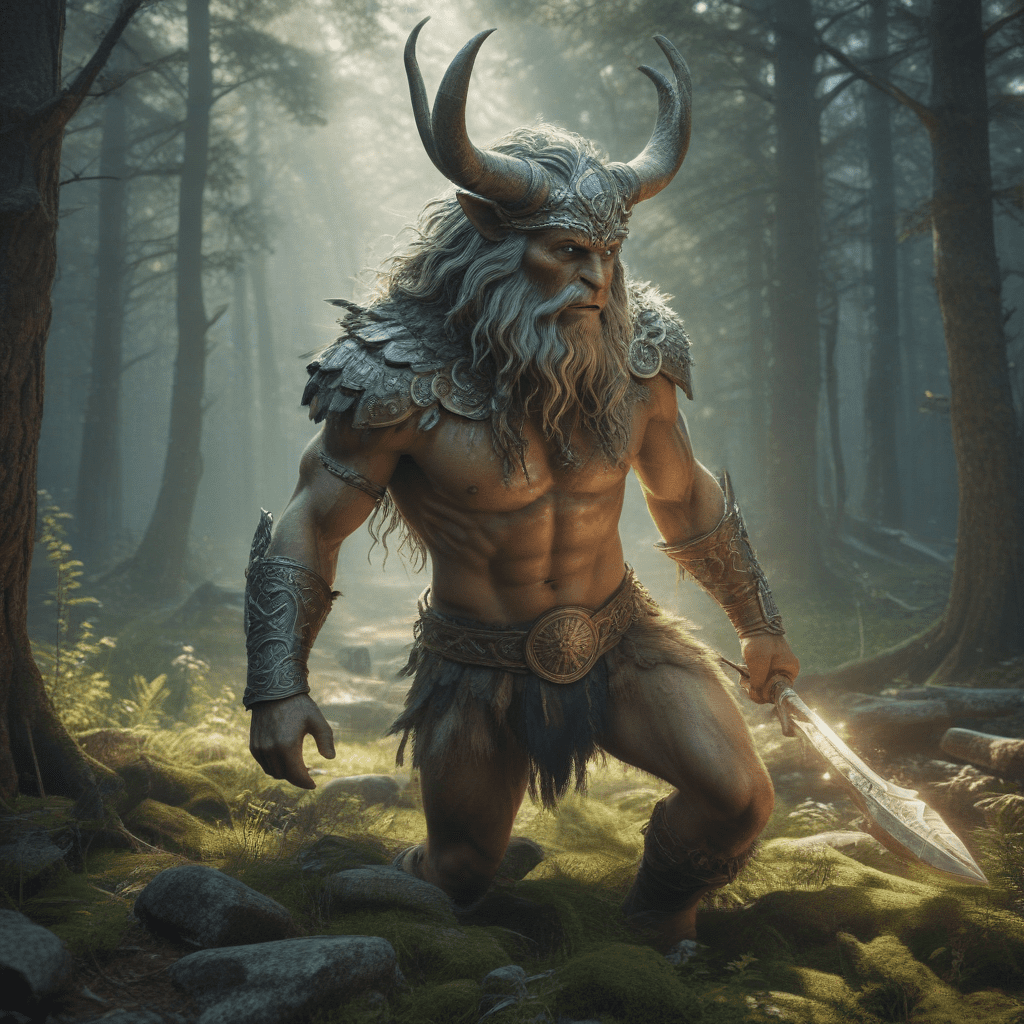The Myth of the Corn God: A Story of Sustenance and Sacrifice
I. Introduction
The Corn God, a deity revered across numerous cultures, embodies the delicate balance between life-giving sustenance and the sacrifice necessary for continued prosperity. This fascinating figure, often depicted as a young, vibrant god, represents the cyclical nature of agriculture, where death and renewal intertwine to ensure the continuation of life. The Corn God myth explores the profound relationship between humanity and nature, reminding us of the interconnected cycle of giving and receiving that sustains both.
II. The Corn God in Mythology
A. Origins and Significance
While the origins and specific characteristics of the Corn God vary across cultures, his core significance remains consistent: He embodies the cycle of agricultural life, death, and rebirth. This cycle mirrors the seasons, with the planting of seeds symbolizing death, the growth of crops symbolizing life, and the harvesting symbolizing sacrifice. The Corn God, through his death and rebirth, ensures the continuation of this cycle and, consequently, the survival of his people.
B. The Corn God in Different Cultures
The Corn God myth appears in diverse forms across the globe. In ancient Mesoamerica, he was revered as Cinteotl by the Aztecs, while the Maya worshipped him as Yum Kaax. In ancient Egypt, Osiris, the god of agriculture and the underworld, embodied the Corn God archetype. In Greek mythology, Demeter, the goddess of agriculture and harvest, mourned the loss of her daughter Persephone, symbolizing the barrenness of winter and the promise of her return in spring. These diverse portrayals, each with their unique cultural nuances, underscore the universality of the Corn God myth and its profound impact on human understanding of nature and the cycle of life.
C. Common Traits and Symbolism
Despite their cultural variations, Corn Gods share several common traits. They are often depicted as young and vigorous, symbolizing the life-giving force of nature. Their association with corn, a vital source of sustenance for many civilizations, further emphasizes their role as providers. Additionally, Corn Gods often meet a tragic end, sacrificed to ensure the continued fertility of the land and the prosperity of their people. This sacrifice signifies the necessary cycle of death and renewal that underpins agricultural life. The Corn God's symbolism, therefore, extends beyond mere agricultural practices; it delves into deeper philosophical and spiritual realms, exploring themes of life, death, rebirth, and the delicate balance between sacrifice and renewal that sustains the world.
III. Sustenance and Sacrifice: The Two Faces of the Corn God
A. The Corn God as Provider of Life and Sustenance
The Corn God stands as the embodiment of life and sustenance, providing nourishment and ensuring the survival of his people. His association with corn, a staple food in many cultures, highlights his role as the ultimate provider. The bountiful harvests attributed to the Corn God's blessings symbolize the abundance and prosperity he brings to his followers. By ensuring the land's fertility and the crops' growth, the Corn God guarantees the continuation of life and the well-being of his community.
B. The Corn God and the Sacrifice Cycle
While the Corn God represents life and sustenance, he also embodies the essential role of sacrifice in ensuring continued prosperity. The cyclical nature of agriculture necessitates sacrifice, as the death of the crops during harvest paves the way for new life and growth. The Corn God's sacrifice, often depicted as a ritualistic death and rebirth, mirrors this agricultural cycle. By offering himself as a sacrifice, the Corn God ensures the land's fertility and the continued abundance of crops, demonstrating the necessary balance between giving and receiving that sustains life.
C. The Symbolic Meaning of Sacrifice
The Corn God's sacrifice transcends its literal meaning, delving into deeper philosophical and spiritual realms. His sacrifice signifies the essential role of death and renewal in the cycle of life. It represents the understanding that sacrifice, in its various forms, is often necessary for growth and progress. The Corn God's willingness to sacrifice himself for the greater good embodies the spirit of selfless giving and the belief that death can pave the way for new life and prosperity.
IV. Theoretical Perspectives on the Corn God Myth
A. Functionalist Approach
The functionalist approach views the Corn God myth as a way for societies to understand and cope with the challenges of agriculture. The myth provides a symbolic explanation for the cyclical nature of life and death, offering comfort and reassurance to farmers who rely on the land's bounty for their survival. By personifying the forces of nature, the Corn God myth helps humans make sense of the unpredictable and often harsh realities of agriculture.
B. Structuralist Approach
The structuralist approach focuses on the underlying structures and patterns within the Corn God myth. This approach emphasizes the binary oppositions present in the myth, such as life and death, sacrifice and renewal, and giving and receiving. By analyzing these oppositions, structuralists can identify the underlying cultural values and beliefs reflected in the myth.
C. Psychoanalytic Approach
The psychoanalytic approach interprets the Corn God myth through the lens of human psychology. This approach views the myth as a symbolic expression of deep-seated anxieties and desires related to life, death, and sacrifice. The Corn God's sacrifice can be seen as a symbolic resolution of these anxieties, offering a sense of comfort and control over the unknown.
V. The Corn God Myth and Modern Society
A. The Relevance of the Myth Today
Though the Corn God myth originated in ancient times, its themes remain relevant in modern society. The myth's emphasis on the cyclical nature of life, the balance between sacrifice and renewal, and the interconnectedness of humanity and nature continues to resonate with us today. The Corn God's story serves as a reminder of the importance of sustainable practices, environmental stewardship, and the selfless giving that contributes to the well-being of our communities.
B. The Corn God Myth in Literature and Art
The Corn God myth has inspired countless works of literature and art throughout history. From ancient murals depicting the Corn God's sacrifice to contemporary novels exploring the themes of life and death, the myth continues to capture the imagination and inspire creativity. These artistic expressions provide a platform for reinterpreting the myth's meaning and exploring its relevance in modern society.
C. Environmental and Ethical Implications
The Corn God myth carries significant environmental and ethical implications. The myth's emphasis on the interconnectedness of humanity and nature reminds us of our responsibility to protect and preserve the environment. The Corn God's sacrifice serves as a reminder of the ethical considerations involved in our relationship with the natural world. By understanding the myth's message, we can foster a deeper appreciation for the delicate balance between human needs and environmental sustainability.
VI. Conclusion
The Corn God myth, with its rich symbolism and profound themes, continues to captivate and inspire us today. It offers a timeless reflection on the interconnectedness of life and death, the necessity of sacrifice for renewal, and the delicate balance between humanity and nature. By understanding the Corn God's story, we gain a deeper appreciation for the cyclical nature of life, the importance of sustainable practices, and the ethical considerations involved in our relationship with the natural world.
VII. References
- Aztec Mythology by M.L. Miller and Karl Taube
- The Myth of the Eternal Return by Mircea Eliade
- The Golden Bough by James George Frazer
- The Corn Mother by Esther Matteson
- The Sacred and the Profane by Mircea Eliade
VIII. Additional Resources
- The Myth of the Corn God website: www.cornmyth.org
- The Corn Mother by Esther Matteson: www.amazon.com/Corn-Mother-Esther-Matteson/dp/0806115907
- The Sacred and the Profane by Mircea Eliade: www.amazon.com/Sacred-Profane-Nature-Religion-Historical/dp/0156792056
IX. Glossary of Terms
- Corn God: A deity associated with agriculture and the cycle of life, death, and rebirth.
- Sacrifice: The act of giving up something of value for a greater good.
- Renewal: The act of starting again or becoming new.
- Sustenance: The food or nourishment necessary for survival.
- Fertility: The ability to produce offspring or crops.
- Myth: A traditional story that explains a belief, custom, or natural phenomenon.
X. Further Research and Discussion Points
- Explore the Corn God myth in different cultures around the world.
- Analyze the Corn God myth through various theoretical lenses, such as feminism, environmentalism, or post-colonialism.
- Discuss the ethical implications of the Corn God myth in relation to modern agricultural practices.
- Create your own artistic interpretation of the Corn God myth.
FAQ
Q: What is the significance of the Corn God myth?
A: The Corn God myth is significant because it explores the profound relationship between humanity and nature, reminding us of the interconnected cycle of giving and receiving that sustains both. It also delves into deeper philosophical and spiritual realms, exploring themes of life, death, rebirth, and the delicate balance between sacrifice and renewal.
Q: What are some of the common themes found in Corn God myths?
A: Common themes found in Corn God myths include the cyclical nature of life and death, the role of sacrifice in ensuring prosperity, the association with corn as a source of sustenance, and the symbolic representation of the forces of nature.
Q: How is the Corn God myth relevant to modern society?
A: The Corn God myth remains relevant today because it reminds us of the importance of sustainable practices, environmental stewardship, and the interconnectedness of humanity and nature. The myth also serves as a reminder of the ethical considerations involved in our relationship with the natural world.
Q: What are some resources for learning more about the Corn God myth?
A: There are many resources available for learning more about the Corn God myth, including books, articles, websites, and museums. Some recommended resources are listed in the References and Additional Resources sections above.



